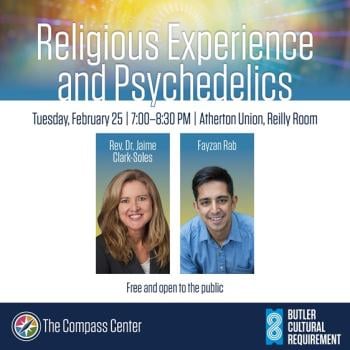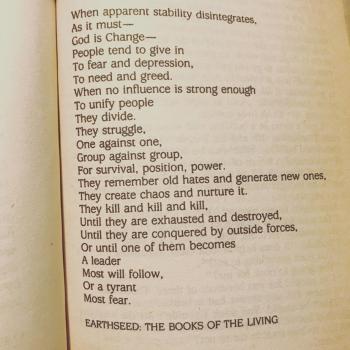I planned to talk about religious experience in a blog post already. It is something of profound personal significance and interest to me, something that came up in a number of outlets that I follow or in other things that people drew to my attention, and was also brought up by a Facebook friend in a question.
Then the movie Fatima was released, and I knew it was time to finish off this post. The movie is worthwhile watching for anyone, but I suspect that those who watch it either as atheists or Roman Catholics will be largely polarized in the assumptions they bring and their reactions to the movie. I’m more interested in how Protestants and others with an openness in principle to religion and even spiritual experience, but without the reverence for Mary and beliefs about penance and the rosary that are part of that tradition. In some ways I think that for those of us who fall into that category, the movie will be the most challenging and thought-provoking. A skeptical professor and author is played by Harvey Keitel, and he interviews the surviving visionary Lucia who is now a nun. Every possible issue related to visions and religious experience can thus be brought to the fore at some point. Why do visionaries seem Mary (or any other figure) in the manner that stereotypical images would lead one to assume they look like? Could these be childhood delusions or psychological mechanisms for coping with the trauma Portugal faced during an era of war, bereavement, and government hostility towards religion? How does a skeptic account for the fact that so many eyewitnesses saw the so-called “miracle of the sun”? And if one dismisses the reality of the Fatima visions and one is an adherent of some other religious tradition, why should any prophet or visionary in your tradition be treated any less skeptically? The movie is worth watching no matter what one’s religious outlook, since the discussions it can spark are useful across a wide array of traditions and degrees of skepticism and belief.
As I move to sharing some other things that have come to my attention, let me start with a call for submissions for Open Theology focused on the phenomenology of religious experience. Next let me turn next to an article about a new biography of a Buddhist monk in India:
The members of Priyadarshi’s clan were familiar with spiritual seekers— this was India—but these were modern, educated, and secular Brahmins. One stated flatly, “Full-time religion is what people do when they have no education, no prospects, no other way to survive.” Priyadarshi’s clan boasted prestigious scholars and prominent political leaders and social activists. They were influencers of society, not dropouts from it. “Why be a monk,” they challenged him, “when you could be respected and make a difference in the world?”
It is a fair question, one anybody might ask, even many Buddhist practitioners. Running Toward Mystery delivers one convincing answer, demonstrating the value of a renunciate life to the contemporary world.
Part of the answer is religious experience.
See also:
The Gospel of Thomas: A Fresh Gospel Perfectly Suited for a New Yet Ancient Spiritual Practice
Transfiguration—an Altered State of Consciousness Experience
Reviews appeared in Reading Religion of The Shape of the Soul and The Science of Near Death Experiences.
Bart Ehrman drew attention to a new documentary that includes spiritual experience among the topics it explores. The Religious Studies Project had a podcast that touched on relevant topics including African shamanism. The Religious Studies Project also had a couple of episodes of their podcast focused on NDEs (Near Death Experiences):
https://www.religiousstudiesproject.com/2020/06/19/are-ndes-universal/
https://www.religiousstudiesproject.com/2020/06/19/on-the-details-of-the-study-of-ndes/
Another of their episodes, this one on the qualifications of African shaman, is also relevant to the topic of religious experience.
A Facebook friend asked me about the phenomenon of speaking in tongues not long ago. Here’s Jack Levison on that topic:
https://jacklevison.com/speaking-in-tongues/
And here’s Andrew Perriman on the same subject.
Matthew Fox writes, “New Testament scholar Dominic Crossan observes that for Paul you cannot be a Christian without being a mystic.”
See too:
https://internetmonk.com/archive/wednesday-with-michael-spencer-the-lived-spiritual-life-is-a-frequent-contradiction
And finally, a call for papers about community, art, and religious experience.
What are your views on religious experience? Please share your thoughts in a comment and join the conversation about this subject, even if you haven’t seen the movie. The movie is based on historical events as remembered by some involved, and the topic is relevant regardless of whether you have yet seen the film or not.













